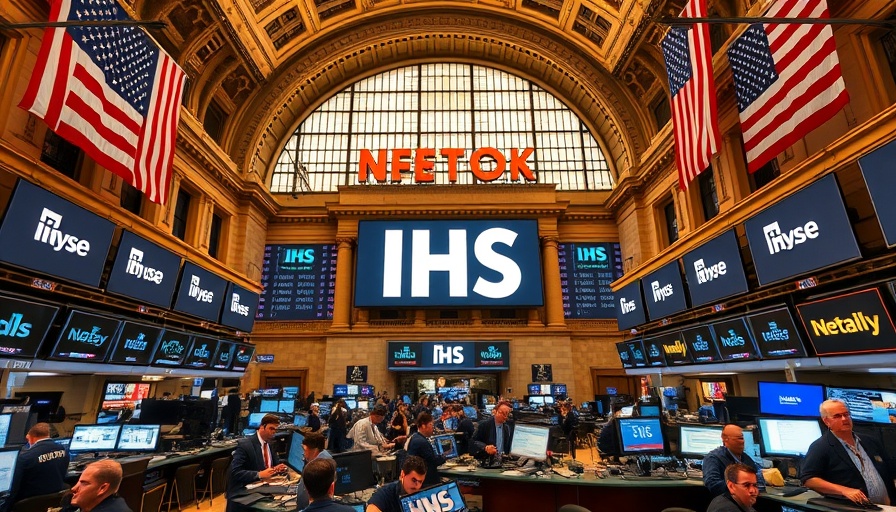
Investors Eye IHS Towers as Nigerian Telecoms Rebound
In a significant turn of events, IHS Towers, the largest independent telecom tower company in Africa, has witnessed its highest single-day trading volume in nearly two years—over 3 million shares traded on May 7, 2025. The spike in investor interest followed a remarkable 9.7% increase in share price to $5.7. This surge reflects a broader trend of recovery among Nigeria’s top telecommunications companies, notably MTN Nigeria and Airtel Nigeria, which together contribute significantly to IHS’s revenue.
Nigeria’s Telecom Landscape: A Boon for IHS
With Nigeria accounting for approximately 58.3% of IHS's total revenue in 2024, the performance of this telecommunications titan directly influences the tower company’s success. The recent recovery of MTN and Airtel after weathering currency fluctuations and rising operational costs has generated renewed optimism for IHS Towers. For context, IHS has secured long-term contracts that ensure about 72% of its revenue, providing a buffer against market turbulence and assuring its investors of steady cash flow.
The Impact of Regulatory Changes on Connectivity
Recent developments, such as the Nigerian Communications Commission's (NCC) tariff increase, have created a positive environment for mobile network operators, facilitating further investment in infrastructure. This is crucial as Nigeria strives to enhance its digital connectivity, especially in underserved rural sectors where the demand for robust telecommunications is surging. IHS has ambitious plans to construct 500 new towers in 2025, integrating advanced 4G and 5G technology to meet the increasing data demands of consumers.
Infrastructure Sharing: The Future of Telecom in Nigeria
As telecom companies aim to optimize costs, innovative infrastructure-sharing models are becoming increasingly popular. A recent agreement between MTN Nigeria and Airtel Africa emphasizes this trend, allowing these companies to expand their reach without the heavy burden of individual tower construction. This collaborative approach is likely to benefit IHS Towers significantly, ensuring that the company remains a critical player amid evolving market dynamics.
Looking Forward: IHS Towers’ Strategic Moves
The confidence investors are placing in IHS Towers is further bolstered by actions from its CEO, Sam Darwish, who recently increased his stake in the company, a clear sign of internal confidence in the organization’s future path. Analysts predict a positive trajectory for IHS, suggesting that the stock may outpace current projections based on a solid foundation of partnerships and strategic planning.
Conclusion: Embrace the Tech Evolution
As the landscape of telecommunications and internet connectivity in Africa transforms, IHS Towers stands on solid ground for future growth. For businesses and investors keen on participating in Africa's digital revolution, keeping an eye on IHS's continuous evolution is imperative. This firm not only serves as a backbone for telecommunications but also increasingly facilitates advancements in AI, fintech, and broader digital transformation across the continent.
 Add Row
Add Row  Add
Add 


Write A Comment